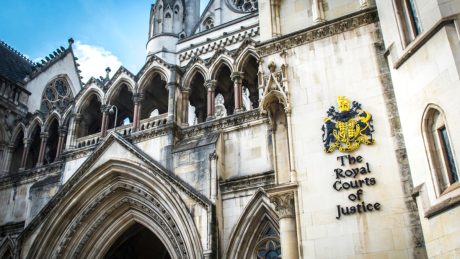In a landmark decision, the Court of Appeal has held that a cross-undertaking in damages in favour of a claimant as a condition of ordering security for costs should only be ordered in “a rare and exceptional case”, and in favour of commercial litigation funders in “even rarer and more exceptional cases”.
David Pickstone, Darren Kidd, and Alex Lerner consider the implications of this significant decision for access to justice and the commercial litigation funding market.
Summary
In what circumstances may a defendant seeking security for costs be required to provide a cross-undertaking in damages as a condition of ordering security? The Court of Appeal has answered by saying only in a rare and exceptional case, and only in an even rarer and more exceptional case if the party seeking the cross-undertaking is a commercial litigation funder.
The Court of Appeal’s decision in Mr Nigel Rowe & Ors v Ingenious Media Holdings Plc & Ors [2021] EWCA Civ 29, handed down on 15 January 2021, overturns a body of first instance case law in which cross-undertakings in damages were required as a condition of ordering security for costs where there was some prospect that the claimant or a third party may suffer loss as a consequence of the order.
The following aspects of the Court of Appeal’s decision are of particular interest:
- Article 6 of the European Convention on Human Rights (ECHR) (the right to a fair trial): the court held that the ‘stifling principle’ (ie where a claimant can show that ordering security would on the balance of probabilities render the pursuit of the claim unaffordable) determines the extent to which a claimant’s rights pursuant to Article 6 are “legitimately or illegitimately trammelled”. As we discuss further below, this is a high bar and is potentially open to abuse by defendants.
- Funded litigation: the Court of Appeal identified factors specific to funded litigation that it believed further emphasised that a cross-undertaking should only be required in favour of a funder in the rarest and most exceptional circumstances. These factors are that funding costs are generally irrecoverable, that funders are not motivated by access to justice, and the need to ensure that funders are adequately capitalised. The Court of Appeal’s decision is likely to lead to an increase in the costs of funding and/or erode the ‘economics’ of funding otherwise meritorious cases and/or create barriers to entry in the market. This would have a negative effect on access to justice for claimants.
Background
There were two appeals before the court. Both arose out of the ‘Ingenious Litigation’ in which more than 500 claimants are pursuing claims in the Chancery Division concerning film (and, in one case, video game) partnerships promoted and operated by the Ingenious Media group. The claimants seek recovery of losses sustained after HMRC’s refusal to accept the tax reliefs that the partnerships were expected to generate. Stewarts acts for the largest group of claimants.
The first appeal was brought by certain funded claimants (represented by Stewarts) against an order made by Mr Justice Nugee (as he then was) refusing an application for a cross-undertaking in relation to the so-called ‘enhanced return’. This was effectively the cost of a funding uplift payable by the claimants to their funder in return for the funder providing security for the defendants’ costs.
The second appeal was brought by the defendants against a second order made by Mr Justice Nugee making it a condition of the provision of security for costs that they give a cross-undertaking in respect of the ‘external costs’ of putting up security, namely the brokerage and insurers’ fees for ‘bonding’ the claimants’ existing after the event (ATE) policies and associated loss of use of money.
The underlying question for the Court of Appeal was, in effect, who should bear the burden of paying the costs of giving security for costs.
The decision
The first issue was whether the court has jurisdiction to require a defendant to provide a cross-undertaking in damages as a condition of ordering security for costs in its favour. The Court of Appeal answered in the affirmative: the courts’ power to do so fell squarely within the scope of CPR 3.1(3) (the general powers of case management).
The Court of Appeal went on to consider whether a cross-undertaking could be required in favour of a litigation funder and, if so, in what circumstances.
Although the parties developed their arguments by reference to CPR 25.14, under which applications for security for costs may be brought against litigation funders, the Court of Appeal began its analysis by going back to first principles and considered the following factors in reaching its decision:
- the costs of funding litigation generally,
- Article 6 of the ECHR,
- the extent to which a security for costs order could be said to be analogous to an interim injunction,
- various practical considerations, and
- litigation funders.
Impact on access to justice
Article 6 rights of both claimants and defendants are engaged when the court is considering whether to make an order for security for costs. While the right of access to courts guaranteed by Article 6(1) may be subject to limitations in the form of regulation by the state, a court must be satisfied that two conditions are met:
“[F]irst, that the limitations applied do not restrict or reduce the access left to the individual in such a way or to such an extent that the very essence of the right is impaired. Secondly, a restriction must pursue a legitimate aim and there must be a reasonable relationship of proportionality between the means employed and the aim sought to be achieved.” (Tolstoy v UK (1995) 20 EHRR 442)
In this case, the Court of Appeal held that the ‘stifling principle’ adequately protected the Article 6 rights of claimants. That is a high bar and one that may only be cleared at a late stage in litigation. If funders and those they fund no longer have the benefit of cross-undertakings in damages as a condition of an order for security save in the most exceptional circumstances, it is easy to see how defendants may use the security for costs regime for strategic gain (as a sword rather than a shield) and how that, in turn, may impair access to justice. For instance, where the claimant cannot show that it would be impossible to raise the security, but where the order nonetheless creates a substantial additional economic fetter on its access to justice. (This is something that a claimant may be unwilling to reveal at an early stage in the litigation for fear of undermining its position.)
Impact on the litigation funding market
The Court of Appeal identified three factors specific to funded litigation that it believed further emphasised that a cross-undertaking should not be required in return for an order for security for costs, save in rare and exceptional cases:
- The costs incurred by a funder in providing a claimant with the money to put up security for costs are not to be treated any differently from any other costs incurred by the funder in funding the other costs of litigation (which are irrecoverable as costs, save to the extent permitted by statute).
- Funders are not motivated by considerations of access to justice. The funding of security for costs is a normal and foreseeable aspect of a funder’s investment, and a funder can be expected to include it in its business model in determining the terms on which funding is provided.
- Funders ought to be properly capitalised in order to be able to meet an adverse costs order if the relevant funded claim fails. A funder should also be structured and operated in such a way that there is little doubt that it will be able to satisfy any adverse costs order made against it. It would not be appropriate or fair for a funder to impose the cost of arranging capital on defendants through the mechanism of a cross-undertaking in damages.
The Court of Appeal’s view was that its decision would incentivise what it perceived to be a need for improvements in the way in which the funding market operates. Further, it was reluctant to create what it perceived to be a positive incentive for funders to be deliberately reticent about their financial means, retain less capital and obtain less ATE insurance. That would enable funders “to pass on to defendants part of the cost of capital of their own business and/or to maximise their profits in the process”.
The Court of Appeal closed by noting that if there is to be a new practice in this area, it should be developed through legislation rather than case law. It invited a synoptic review by either the Law Commission or the Civil Procedure Rules Committee. Whether or not this will lead to statutory intervention (and, if so, what that intervention will involve) remains to be seen.
You can find further information regarding our expertise, experience and team on our Tax Litigation and Investigations pages.
If you require assistance from our team, please contact us or request a call back from one of our lawyers by submitting this form.
Subscribe – In order to receive our news straight to your inbox, subscribe here. Our newsletters are sent no more than once a month.







